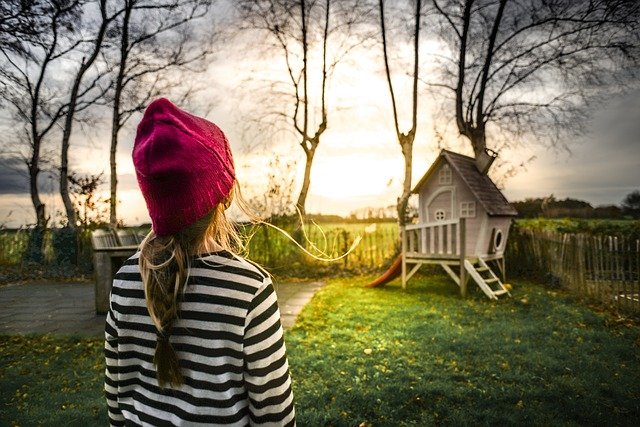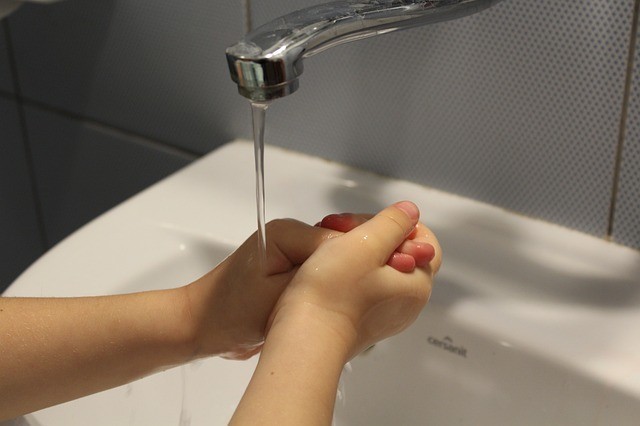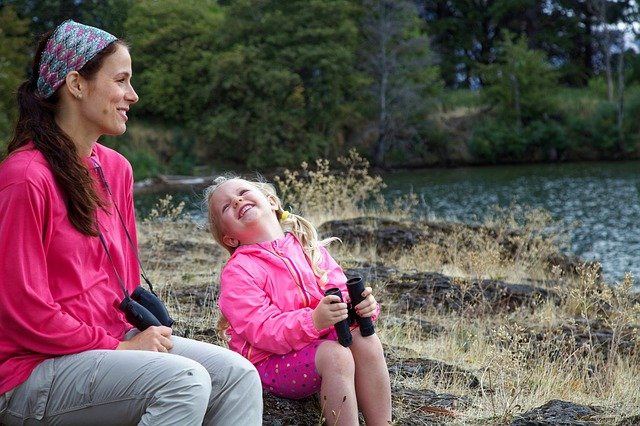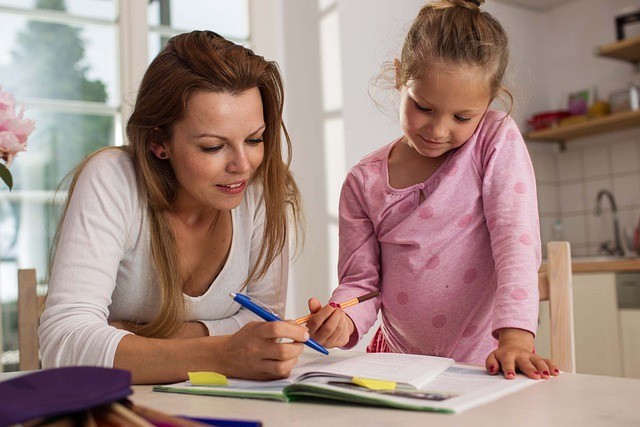The COVID-19 pandemic has changed everything about our lives for the time being. Until a vaccine becomes available, it’s likely that we’re going to be living with some restrictions at least. Of course, that also means that as virus cases spike, the risk of further lockdowns also increases.
For adults, COVID-19 is stressful. Work needs to be done, wages may not be paid to the same amount, perhaps you are put onto furlough or you lose your job completely. These are very real worries that hamper the daily lives of adults during the pandemic, alongside the very real worry of yourself or someone close to you becoming sick.
Adults are able to talk through their problems, see the bigger picture and gain perspective by reading up on the facts. Children are not so lucky.
It’s easy to assume that children aren’t as affected by the pandemic. They simply don’t have to go to school, have more time to spend at home, and you think they don’t understand much of what is going on around them. That’s not the truth.
COVID-19 is very apparent to children, especially older children who can listen to the news and understand certain things which are written online. Even younger children can pick up on what is going on, even if they’re not entirely sure of the finer details. Any change in routine, e.g. not going to school and not being able to mix with friends or see grandparents, is extremely distressing to a child and it causes anxiety and stress as a result.
It’s important that we focus upon the health and wellbeing of our children during this difficult time and appreciate that perhaps the stress isn’t only limited to adults, but that it affects children too.
How Does COVID-19 Affect Children Psychologically?
If a child is able to understand what the pandemic is, they’re going to worry. It’s normal. The people who care for them, e.g. their parents or primary caregivers, could become sick and that’s something your child is likely to be very aware of. You’re telling your child they have to wear a mask and that they need to wash their hands and stay away from others; by doing that they know that something is very wrong.
Young children may not be old enough to fully understand and that leaves dangerous space in their minds where they can fill in the gaps themselves.
During this period, children may start to develop a sense of isolation, perhaps from not being able to see their friends or their older relatives, and this could turn into anxiety and even a fear of what could happen if they caught the virus or if a relative was to catch it. Children may also become very clingy around their parents at this time and worry excessively when their parent has to go out shopping or go to work. They worry that they’re going to become sick and start to develop a severe fear of death.
All of this affects your child’s psychological development to a huge degree and even when the pandemic abates, these fears and feelings aren’t things you can just turn off. They’re likely to cause your child to become fearful of the pandemic coming back, or become worried whenever someone becomes sick in some other way, no matter how minor.
Extreme anxiety such as this isn’t something children should be experiencing but we aren’t living in normal times. Anxiety has a habit of taking root and growing, which could mean that your child goes on to develop generalised anxiety disorder (GAD) throughout their adolescent and adult years, or it could lead towards PTSD and other psychological problems.
It’s very easy to assume that children don’t really understand what is going on right now, but they understand enough for it to affect them. Not completely understanding is also dangerous because it leads to overthinking. Children’s minds are far more active than you might give them credit for and imagination can sometimes cause them to explore outcomes which lead them down very dark paths. As a parent or primary caregiver, it’s important to know how to lead your child through this difficult time, to ensure that their psychological development isn’t compromises or affected in a very detrimental way.
How to Help Your Children Through The Pandemic
Worldwide news is reported literally everywhere. At the moment, you can’t move without hearing the word ‘coronavirus’ or ‘COVID’ and your child is not immune to seeing such things. They might also be out of school at the moment, learning online, or having to socially distance from their friends in the classroom. These are abnormal situations which lead to extreme anxiety.
In order to help your child through this difficult time it’s vital that you communicate regularly and clearly.
Your child might have a lot of questions but they’re not sure how to word them, and keeping everything locked up inside isn’t healthy. Having a conversation with your child about COVID is best done in a relaxed way. If you sit your child down and say “now, we need to talk bout coronavirus”, it’s going to cause more anxiety because the very tone means that it’s serious. Of course, it is serious, but there is a way to have these conversations without causing your child to worry more than they already are.
Perhaps whilst you’re watching TV, if something comes onto the TV about COVID, maybe the news or an advert asking people to wear masks, that could be a great opportunity to bring the subject up. Saying something like “what do you think about the virus?” helps to start the conversation without causing more fear with a serious introduction.
Encourage your child to ask questions – “is there anything you’d like to know?”, “anything you’d like to ask me?” You can then explain what the virus is, why we need to wash our hands and wear masks and why we need to keep our distance from our elderly relatives for the time being. Make sure that you place an emphasis on this only being for the short-term. A child’s mind can run from 0 to 100 very quickly, and they may be wrongly thinking that they’re never going to see their grandparents again. Explain that soon there will be a vaccine for the virus that means we can all mix together once more.
Imagination is a wonderful thing for children to have but it can also be a curse in many ways. When not quite enough information is known or questions go unanswered, that imagination can dream up all manner of situations which might lead to excessive worry and anxiety. It’s important to be open about the virus, talking about it in a way which doesn’t lead towards more worry than necessary, and keeping an almost light atmosphere on things, such as buying your child a new mask that has their favourite cartoon character on it. These small things will not only encourage your child to wear their mask (if indeed they are old enough to do so) but will take the serious edge off it at the same time.
Managing Upsets
It’s possible that you child will become very upset because they can’t do the things they would normally do. They can’t play with their friends in the same way, they can’t see their elderly relatives and if restrictions are in place, they can’t play outdoor sports, etc. Children can easily become upset and angry when they’re told they can’t do something which they’ve always done, but it’s important to manage these upsets in a calm way.
Sit your child down and explain that whilst it’s definitely disappointing that they can’t do the thing they would normally do, it’s not forever. Explain that you can’t do the same things either, but at the moment we all need to just wait things out until things improve. Take the opportunity to suggest new things your child might like to do, such as playing football in the garden, taking the dog for a walk, or trying a new hobby at home.
It’s vital that you stay calm yourself because if you become upset or annoyed at the restrictions that are in place, that’s going to translate to your child. Try and do things together, such as baking in the kitchen, or playing games together, such as board games or creating your own quizzes.
You could also give your child something to look forward to, but avoid putting dates on it in case things aren’t quite clear by the time it rolls around. If that happens, you’re going to have an even bigger problem to deal with. Perhaps you could plan a family holiday for when things are calmer and restrictions are no longer in place, asking your child where thy would like to go and explaining that whilst we can’t do it right now, we will be able to soon and we can start saving up now.
If Someone Becomes Ill
A huge test will come your way if someone your family knows becomes infected with COVID-19. This is sure to scare your child and cause fear and worry but it’s vital to explain the situation to them clearly and not try to avoid questions or hide them from it. Explain in an age-appropriate way and keep them updated. If they ask you questions, try your best to answer them honestly and clearly.
Your child might also become scared that you are going to become ill too. It’s not easy to explain to a child that illness is part of life, but you can say that you are doing everything you are supposed to do in order to stay safe, e.g. wearing a mask, sanitising your hands, social distancing etc, and that you’re always careful.
The sad truth is that there is nothing you can do to completely wipe away the potential for your child to worry about COVID, and whilst you want to shield your child from any upset and terror, a pandemic like this isn’t something any of us have lived through before. We’re all learning, but understanding that your child is also scared and worried is vital if you want to help them through it. By communicating carefully and trying to make the hygiene side of things interesting and even fun, you can take the fear away and focus on living life in a happy way, despite what is going on.
Of course, the current situation is hard for everyone and it might be that as parents, you’re struggling with juggling work demands and maybe even working from home. If so, hiring a governess or nanny could be a good option. In that case, you have help in dealing with the situation, you have a little more time to do what you need to do, and you know that your child is happy and cared for at the same time.
Our childcare professionals are all very experienced and highly trained in dealing with difficult situations such as the current pandemic and how it may affect a child. If you’re not sure how to handle the situation or you simply feel like you need a little help, hiring a professional to work with you is a great situation that will have a positive outcome for everyone concerned.
Final Thoughts
Dealing with a worldwide pandemic is stressful for both adults and children. Helping your child to handle such an unprecedented situation is vital for health and wellbeing. A child’s mental health is so precariously balanced and can be influenced by the smallest thing. Ensuring that their psychological development remains positive and steady is vital and must be your focus throughout this difficult time we’re facing.
Communication and encouraging questions is key, but also making the household fun and taking some of the seriousness away from the situation too. It’s also a consideration to hire a governess or a nanny, to help your child understand what is going on and learn to cope with the difficult situation in a healthy and positive way.




